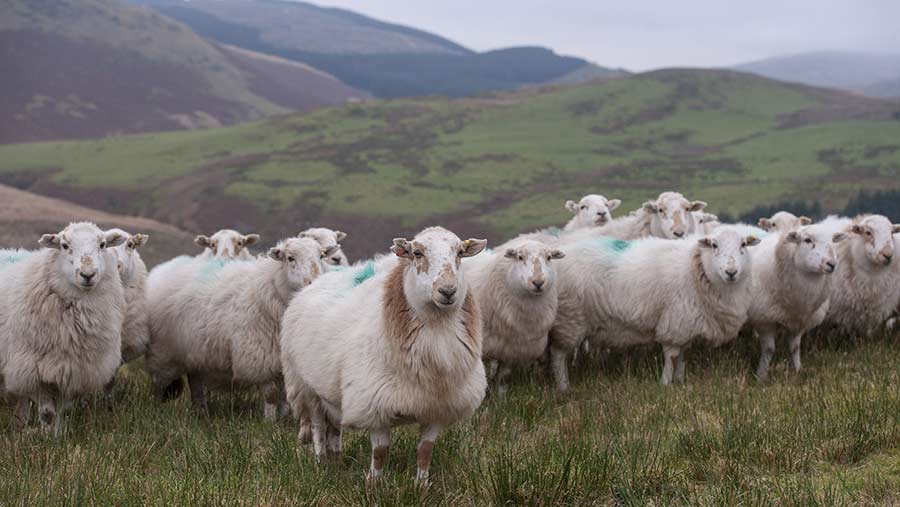Farmers face challenge to survive without direct payments, say experts
 © FLPA / John Eveson/REX/Shutterstock
© FLPA / John Eveson/REX/Shutterstock Experts say many farmers face a challenge to stay in business without direct payments, which the government plans to phase out after the UK leaves the European Union.
The warning was issued by agricultural economists at an event hosted by the Agriculture and Horticulture Development Board event in Solihull on 18 September. Getting rid of direct payments will have a major impact on farm profitability, delegates were told.
Carmen Hubbard, of the Centre for Rural Economy at Newcastle University, is leading a group of economists who have spent 18 months working on an Economic & Social Research Council (ESRC) project investigating the impact of Brexit on farming.
See also: Direct payments to be phased out by 2027
“Many farmers may struggle to survive,” said Dr Hubbard. The elimination of direct support would potentially have a bigger impact on farm profitability than the type of post-Brexit trade agreement – if any – between the UK and EU, she added.
The finding is significant because the study is one of the largest of its kind. The ESRC is funding 20 Brexit impact projects but this is the only one focusing on agriculture. Full findings are due to be published in December, although it is already evident there will be winners and losers.
Beef and sheep sectors – especially in the uplands – are likely to be harder hit than the cereals and dairy sectors by the end of direct support, said Michael Wallace, professor of agricultural and food economics at University College Dublin.
Lack of profitability
These sectors were already suffering from a chronic lack of profitability, and direct payments made up a greater proportion of their farm income.
“It doesn’t make particularly good reading if you are a grazing livestock farmer,” warned Prof Wallace.
The study doesn’t account for any additional farm income from the new system. Neither does it account for any non-tariff barriers that might prevent cut-price food imports from coming into the UK. But the economists said their findings remained significant.
Andrew Moxey, a freelance consultant with more than 30 years experience of applied policy analysis in the land-use sector, suggested as many as 9,000 livestock jobs could be lost in England alone if the UK opted for unilateral trade liberalisation post Brexit.
Taskforce
“If this happened in a factory closure there would be a taskforce to say we’re going to help these people. If you are talking about this number of people distributed across the rural economy, it is difficult to see how you could have a taskforce.”
Plans to phase out direct payments over a seven-year period after Brexit were confirmed in the government’s Agriculture Bill last week. Instead, farmers will be rewarded under a new system largely requiring them to undertake environmental work.
Brendan Bayley, head of agricultural trade at HM Treasury, suggested some findings were unduly alarmist.
Some weaker farmers would probably quit, he said, but two-thirds of farmers didn’t undertake any business planning, which meant there was scope for putting things right.
